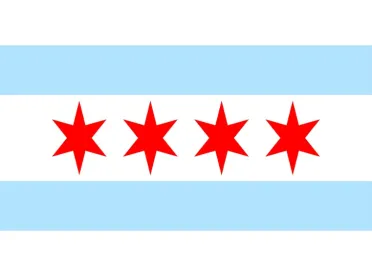Effective July 1, 2017, employers in the City of Chicago will be required to offer at least five days of paid sick leave to part-time and full-time employees. On June 22, 2016, Chicago City Council unanimously approved the Chicago Minimum Wage and Paid Sick Leave Ordinance, substantially expanding paid time off requirements for employers, city-wide. With its approval, Chicago joins a growing number of U.S. cities, states, and counties with similar sick leave requirements.
The ordinance stipulates that any employee working at least 80 hours for an employer within any four-month period qualifies for five days of paid sick leave. New employees must wait six months from their start date to begin using paid sick leave, though they begin accruing time immediately. Employees accrue one hour of paid sick time for every 40 hours worked, with the ability to accrue a maximum of five paid sick days in a 12-month period.
Employees are permitted to carry over up to 20 hours of unused paid sick leave from year to year, or 40 hours if the employer is subject to the Family Medical Leave Act (FMLA). However, if an employee is able to carry over 40 hours of paid sick leave, these additional hours must be used exclusively for Family Medical Leave Act purposes, such as the care of a newborn or serious illness. In either case, employers are not required yet to pay out any unused sick time when an employee leaves the company.
Except in instances in which the sick time is foreseeable, such as a planned doctor’s appointment, employees are not required to provide notice before using the paid sick leave. The ordinance also prohibits employers from requiring that employees find replacements to cover their shifts. However, if an employee takes three or more consecutive paid sick leave days, employers may seek confirmation that the employer took the time for legitimate reasons.
Certain employers and industries are exempt from the ordinance. Due to scheduling and staffing considerations, the construction industry is exempt from the new provisions, and the ordinance will not affect any existing collective bargaining agreements. When current contracts are up for renewal, both parties may elect to waive the new sick leave requirements.
Advocates of the ordinance suggest that mandating paid time off for part-time employees provides needed support for some of the workforce’s most vulnerable employees. Notably, the ordinance stipulates that in addition to using the paid time off to attend to the medical needs of themselves or their families, workers can use the time in the event of domestic violence or the closing of the business due to a public health emergency.
Critics of the mandate are concerned that the scope of the city-wide ordinance puts Chicago businesses at a competitive disadvantage, particularly because it follows so closely on the heels of the minimum wage increase and the plastic bag ban, two recently implemented policies directed at Chicago businesses.
Additionally, the mandate may be particularly onerous for small business owners. Paid time off allowances are an expensive employee benefit, and the increased costs may discourage employers from hiring new employees. The details of the mandate are complicated and will be difficult for employers to understand, especially so for small business owners, many of which do not have human resource departments to assist with compliance.
Chicago businesses that do not currently offer five or more days of paid sick leave to full-time and part-time employees should consult counsel in order to ensure they are in compliance with the new mandate.
Brenna R. McLean is co-author of this article.





 />i
/>i

